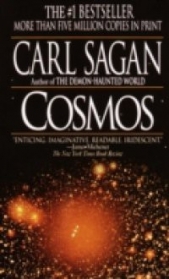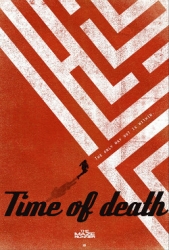Hear No Evil

Hear No Evil читать книгу онлайн
From Publishers Weekly
Miami lawyer Jack Swyteck is in for one hell of a roller coaster ride in this lapel-grabbing thriller, Grippando's ninth (Last to Die; etc.). Lindsey Hart, about to be charged with the murder of her husband, Marine Capt. Oscar Pintado, comes to Jack because she believes he is her last, best chance-and also the biological father of her adopted son. Stunned, Jack thinks he recognizes the picture of the 10-year-old she shows him ("he knew those dark eyes, that Roman nose"), but he still isn't sure whether he should take the case. What if he doesn't and she's innocent? She could be convicted. But if she's guilty-and he takes the case and wins it-he doesn't want to see the child raised by a murderer. Thanks to Grippando's devious mind, that's just the beginning. Plot twists, doled out with perfect timing, include the story of the murder victim, who's the son of a rich and powerful anti-Castro activist; the prosecutor's connection to Swyteck's family; and the testimony of the defense's prime witness, who is a private in Castro's army-the murder took place on the U.S. military base at Guant?namo Bay, Cuba. It's manipulative Lindsey, however, who proves to be the book's most unpredictable element. This character-driven, intricately plotted thriller will keep readers guessing up to the end.
Внимание! Книга может содержать контент только для совершеннолетних. Для несовершеннолетних чтение данного контента СТРОГО ЗАПРЕЩЕНО! Если в книге присутствует наличие пропаганды ЛГБТ и другого, запрещенного контента - просьба написать на почту [email protected] для удаления материала
“Then don’t call him as a witness. But if you want to preserve your rights, Mr. Swyteck, let’s hear his name. Now.”
Jack paused, then said, “His name is Felipe Castillo.”
Silence gave way to a growing murmur through the crowd. Jack could almost hear the pencils scratching across notepads in the press gallery behind him. Jack wasn’t happy about giving up the soldier’s name, but there was some satisfaction to be had in the astonished expression on the prosecutor’s face. It was as if Torres had indeed thought that the defense was bluffing-as if, when push came to shove, Jack would be unable to deliver a name.
“All right,” said the judge, his tone reflecting a little surprise of his own. “We have a name. Does that satisfy you, Mr. Torres?”
Again the prosecutor glanced at Jack, still unable to believe that there actually was a Cuban soldier who might soon be walking into the courtroom. “That’ll do it, Judge.”
“Then that concludes our pretrial conference. I will see you back here tomorrow morning, nine o’clock sharp. We’ll pick a jury. Until then, this court is adjourned.” The judge banged his gavel and left the courtroom through a side exit to his chambers, immediately unleashing the mad rush for the exits. No cameras were allowed in federal court, so the television journalists were leading the charge out the doors to their media vans to make their reports. Others charged toward the rail and fired questions at the lawyers.
“Is Felipe Castillo in Miami now?” one asked.
“Is it true that the soldier will be staying in your home, Mr. Swyteck?”
“Have you spoken directly to Fidel Castro?”
Jack wanted to respond, but with all the confusion and borderline hysteria, he feared that his answers would only be distorted in print. He looked at no one in particular and said, “We will issue a statement on this matter once we’ve made a final decision about this witness. That’s all for now. Thank you.”
The questions kept coming. Like it or not, Felipe Castillo was about to become a household name-at least a Latin household name-in all of south Florida. Jack and Sofia pushed toward the exit. It seemed to take forever, but they finally made it down the long aisle and out the double doors. Several more minutes passed before they could wind through the crowded corridor and reach the main exit. It was difficult for Jack to hear himself think, let alone to discern any one particular voice among the many that were coming at him. But somewhere above the ruckus he heard Hector Torres issue one last sound byte for the evening news.
“Watch carefully tomorrow,” said Torres. “It won’t be the prosecution that is systematically excluding Cuban Americans during jury selection.”
Jack pushed through the revolving doors, and Sofia was at his side as they stepped into the afternoon sun. Compared to the mob outside the courthouse, the crowd inside had been a model of civility. A pretrial conference wasn’t typically a spectacle, but it could be-particularly if someone as powerful as Alejandro Pintado had gotten wind from the prosecutor that he was going to force the defense to commit one way or another on the Cuban soldier as witness. Hector Torres was without question a friend to Jack’s father. But he was proving himself no friend of Jack’s.
“Looks like we have some more visitors,” said Sofia. She was following closely behind him, like a running back behind a blocker.
A huge crowd had gathered on the sidewalk in front of the federal building. A few were the courthouse version of rubberneckers, simply drawn to all the commotion. Others were with the media, reviewing notes, toting cameras, and primping their hair, all of which was accomplished with the journalistic fancy footwork needed to keep from tripping over their own tangle of cords and wires. The largest numbers, and the obvious reason for the strong police showing, were those marching in protest. It was a mob scene, hundreds of people pushing toward the courthouse entrance. They were restrained by wooden barricades and row after row of police, some mounted on bicycles or horseback. One demonstrator had climbed halfway up a lightpost, and as Jack and Sofia emerged from the building, he waved to the crowd and shouted something in Spanish that must have been the equivalent of “There they are!” Instantly, a sea of angry fists shot into the air, and the crowd began to shout the messages that were displayed on their signs and banners, most of which were in Spanish.
“Mr. Pintado, we love you!”
“We want Justice for Cubans, Not Lies from Cuban Soldiers!”
“Cuban Americans are AMERICANS!”
“No Castro, No Problema!”
Jack wasn’t exactly sure how the last one fit in, but this was, after all, Miami.
“Holy cow,” Sofia whispered into Jack’s ear. It was an almost involuntary reaction to the gathering in the parking lot across the street. Dozens of mobile media vans were stationed there, many with microwave towers and satellite dishes. The call letters painted boldly on the vehicles identified about an equal number of English-and Spanish-language radio and television stations.
“Just keep walking,” Jack told Sofia.
The crowd followed right on their heels, shouting and waving their signs as the defense team descended the granite stairs. Jack could feel their momentum gathering as they passed beneath the trees in the courtyard, and an armada of television cameras greeted them at the wide sidewalk. Questions and microphones popped up from everywhere.
Jack had anticipated a crowd, but nothing like this. Nonetheless, he stuck to his original plan and turned to face the television cameras. He wasn’t the consummate politician that his father was, but he still showed signs of the Swyteck gift when addressing the media, a honed skill that made it seem as though he was looking the whole world directly in the eye when in reality he wasn’t actually focused on anyone.
Jack said, “On the eve of this important trial, it is important for us all to remember that no one is grieving more for the loss of Captain Oscar Pintado than his son, Brian, and his wife of twelve years, Lindsey. Lindsey was extremely proud of her husband’s service in the U.S. Marine Corps, and I’m proud to be her lawyer. We all look forward to her complete acquittal on all charges and the clearing of her good name. Thank you.”
The reporters shouted a series of follow-up questions, but the moment Jack finished his statement, a sedan pulled up at the curb and stopped directly behind him and Sofia. The door flew open. Jack and Sofia offered no further comment as they climbed into the backseat. The door closed, and, had it not been for the police, the mob would have been climbing onto the hood. The vehicle inched forward, and crowd patrol finally managed to clear an opening. The sedan pulled away and headed for the expressway.
Theo was behind the wheel.
“Don’t speed,” said Jack. “But don’t waste any time getting out of here.”
“No problem, boss.”
Sofia glanced through the rear window to check out the crowd they’d left behind. “Wow. I feel like a celebrity.”
“Get used to it,” said Jack.
“Does this mean there’ll be groupies?” said Theo.
Jack rolled his eyes. “Just drive, Theo.”
Theo managed to catch a string of green lights, and the car seemed to jump onto the expressway as they hit the on ramp. In minutes they were cruising down I-95, away from downtown Miami, and then over to Key Biscayne via the Rickenbacker Causeway.
Key Biscayne was like another world, which was why Jack lived there. It was an island paradise, practically within the shadows of Miami ’s skyscrapers, yet far enough removed from the chaos that he could enjoy the city views without being constantly reminded of work. They rode in silence until Jack could decompress. There was no one better than Theo at figuring out when Jack was ready to talk, and by the same token, there was no one more blatant about not giving a shit whether Jack was ready to talk or not.






















